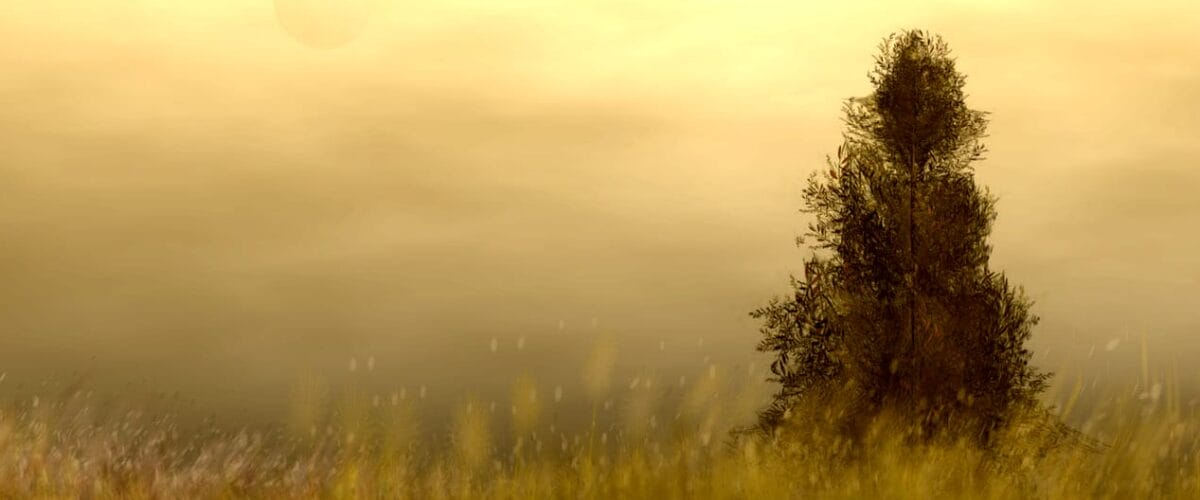Scripture Text – Genesis 6:9 – 7:24
Methuselah was Noah’s grandfather, and Noah knew that when his grandfather died, nothing stood in the way of God’s judgment falling on a wicked world. For over a century, Noah had been warning people about the coming judgment, but only his own family had believed him and trusted the Lord.
Then Methuselah died and things began to happen. One day, Noah and his family entered their “boat” and the rains came. (“It can’t go on forever,” people said. “It’ll stop one of these days.”) But it rained for forty days and forty nights, and subterranean explosions discharged more water on the earth. Even after the rain stopped, the water continued to rise; and within five months, the whole earth was under water and everything that breathed was dead. Everything, that is, except Noah and his family, the eight people everybody laughed at.
A Secure Man Who Waited On God – Continued
Please read Genesis 7:1-24 to get the background for this section.
A universal judgment – continued. God promised that He would never send another flood like the one He sent in Noah’s day (Genesis 9:8–17). But if the Flood was only a local event, God didn’t keep His promise! Over the centuries, there have been numerous local floods, some of which brought death and devastation to localities. In 1996 alone, massive flooding in Afghanistan in April left 3,000 people homeless; and in July, flooding in Northern Bangladesh destroyed the homes of over 2 million people. In July and August, the Yellow, Yangtze, and Hai rivers flooded nine provinces in China and left 2,000 people dead. If Noah’s flood was a local event like these floods, then God’s promise and the covenant sign of the rainbow mean nothing.
The plain reading of the text convinces us that the Flood was a universal judgment because “God saw… . all flesh had corrupted their way upon the earth.” – Genesis 6:12. We don’t know how far civilization had spread over the planet, but wherever humans went, there was sin that had to be judged. The Flood bears witness to universal sin and universal judgment.
Both Jesus and Peter used the Flood to illustrate future events that will involve the whole world: the return of Christ (Matthew 24:37–39; Luke 17:26–27) and the worldwide judgment of fire (2 Peter 3:3–7). If the Flood was only local, these analogies are false and misleading. Peter also wrote that God did not spare “the ancient world” (2 Peter 2:5) when He sent the Flood, which implies much more territory than a limited area.
A patient family. In spite of the devastation on the outside, Noah, his family, and the animals were secure inside the ark. No matter how they felt, or how much the ark was tossed on the waters, they were safe in God’s will. Patiently they waited for God to complete His work and put them back on the earth. Noah and his family spent one year and seventeen days in the ark, and even though they had daily chores to do, that’s a long time to be in one place. But it is “through faith and patience” that we inherit God’s promised blessings (Hebrews 6:12; 10:36), and Noah was willing to wait on the Lord.
Peter saw in Noah’s experience a picture of salvation through faith in Jesus Christ (1 Peter 3:18–22). The earth in Noah’s day was immersed in water, but the ark floated above the water and brought Noah and his family to the place of safety. This was, to Peter, a picture of baptism: death, burial, and resurrection. The earth was “dead” and “buried” because of the water, but the ark rose up (“resurrection”) above the water to bring the family through safely. New Testament baptism was by immersion, picturing the believer’s identification with Christ in death, burial, and resurrection (Romans 6). Jesus died, was buried, and arose again; and through His finished work, we have salvation from sin. Peter makes it clear that the water of baptism doesn’t wash away sin. It’s our obedience and faithfulness to the Lord’s command to be baptized (Matthew 28:19–20) that cleanses the conscience so that we are right before God.
The great British expositor Alexander Maclaren said:
For a hundred and twenty years the wits laughed, and the “common-sense” people wondered, and the patient saint went on hammering and pitching at his ark. But one morning it began to rain; and by degrees, somehow, Noah did not seem quite such a fool. The jests would look rather different when the water was up to the knees of the jesters, and their sarcasm would stick in their throats as they drowned.
So is it always. So it will be at the last great day. The men who lived for the future, by faith in Christ, will be found out to have been the wise men when the future has become the present, and the present has become the past and is gone forever; while they who had no aims beyond the things of time, which are now sunk beneath the dreary horizon, will awake too late to the conviction that they are outside the ark of safety, and that their truest epitaph is, “Thou fool.” 1
Written by Roland Ledoux
1 Expositions of Holy Scripture, by Alexander Maclaren (Baker, 1974).
Adaptation of excerpts from Warren W. Wiersbe, Be Basic, “Be” Commentary Series.
This is an updated edition of a post originally published on Christian Grandfather Magazine
Featured Image by Prawny from Pixabay




















[…] Open the full article on the kingdomwinds.com site […]